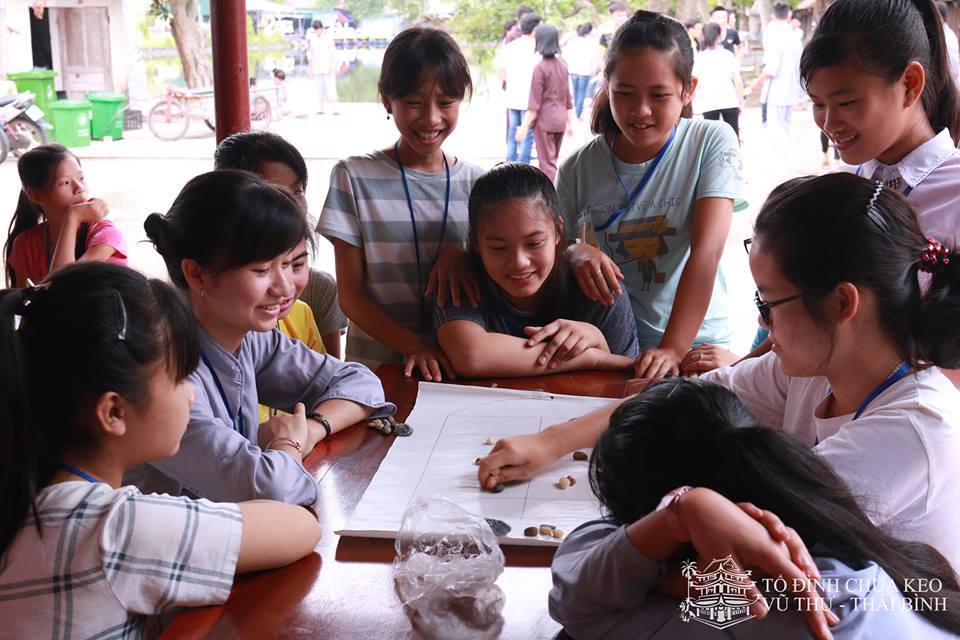The Origin and Profound Meaning of Vu Lan Festival Not Everyone Knows
By Tâm Hoa - 11/08/2018
The Vu Lan Festival is not just a day for Buddhists; it is a season of gratitude and filial piety for all children towards their parents.
Vu Lan Festival is one of the most revered traditional festivals in Buddhism. For thousands of years, this tradition has been meaningfully inherited and promoted. The concept of filial piety has deeply rooted in everyone's mind. As a Buddhist, one must be filial; as a filial person, one must often think of their parents' sacrifices and find ways to repay them. This is a rightful and reasonable act of gratitude. In the Sutra, the Buddha taught: "In the absence of the Buddha, worshiping one's parents is equivalent to worshiping the Buddha."
Origins of the Vu Lan Festival
According to the Vu Lan Sutra, Muc Kien Lien (Maudgalyayana) attained six supernatural powers through his practice. He thought of his parents' deep gratitude and used his divine vision to observe throughout the six realms, seeing his mother (Thanh De) suffering in the realm of hungry ghosts – blood-carrying, sitting on thorns, skin wrapping bones, in extreme hunger and misery. Muc Kien Liên sought ways to save her. He hurriedly brought food to his mother, but as soon as the food reached her mouth, it turned into red-hot charcoal and she couldn't eat it. He returned to the Buddha and was advised: "Your mother has deep sins that cannot be saved by your strength alone. Despite your filial piety moving heaven and earth, all the gods, spirits, and beings cannot save her. Only the power of the Triple Gem in all ten directions can help. On the 15th day of the 7th lunar month, the day of the Buddha's joy and the monastic community's end of retreat, make offerings to the Triple Gem with a pure heart, and your mother will be liberated." Following the Buddha's advice, Muc Kien Lien organized the Vu Lan Festival, making offerings to the monastic community and dedicating the merit to his parents, relatives, and all beings. As a result, everyone was liberated from the hell realm, reborn in the Pure Land, and enjoyed peace and happiness. The Buddha also taught that anyone who wants to repay their parents should follow this practice. Thus, the Vu Lan Festival was born.
Origins and Significance of the Rose on the Lapel
Every year, during the Vu Lan season, you will witness touching images: whether old or young, male or female, attendees of the Vu Lan ceremony respectfully receive a rose pinned on their chest.
Origins
The ritual of pinning a rose on the lapel, according to Professor - Doctor Ngo Đuc Thinh, Director of the Center for Research and Preservation of Vietnamese Belief Culture, originates from an essay on Mother by Zen Master Thich Nha Hanh written in the 1960s.
During a trip to Japan, Zen Master Thich Nha Hanh was intrigued when he saw the Japanese reverently pinning a white flower on his chest. After understanding the beautiful meaning behind this gesture, he chose the rose as a symbol for the Vu Lan filial piety festival and wrote the work "The Rose on the Lapel" in 1962.
Significance
The rose was chosen as a symbol of love, nobility, and fragrance. Remembering one's parents and pinning this noble flower on the chest is the most beautiful expression of filial piety that children can send to their parents. With this meaning, many Vietnamese people pin a rose on their chest during the Vu Lan festival. A red rose is for those fortunate enough to have both parents alive. A pink rose is for those who have lost either their father or mother. A white rose is for those who have lost both parents.
The Humanistic Significance of the Vu Lan Festival
The Vu Lan Festival serves as a "reminder" for younger generations to remember the nurturing and birth-giving efforts of their parents, grandparents, and ancestors, as well as the great contributions of national heroes and those who have served the country. It also helps us embrace the deeply humanistic educational values of Buddhist culture, such as "compassion, loving-kindness, sympathetic joy, equanimity," "selflessness, altruism," and the principles of "drinking water, remember its source" and "when eating fruit, remember who planted the tree."
With those sacred meanings, the Vu Lan Festival and the ritual of pinning roses have become traditional festivals in Buddhist culture, contributing to the preservation of filial piety in Vietnamese culture.
Information and Communications Department
!["[KTMH] Trailer | WHAT TO DO TO MAKE SUMMER HOLIDAYS MORE MEANINGFUL?"](https://i3.ytimg.com/vi/s0VUGa1v6uw/maxresdefault.jpg)


.jpg)
